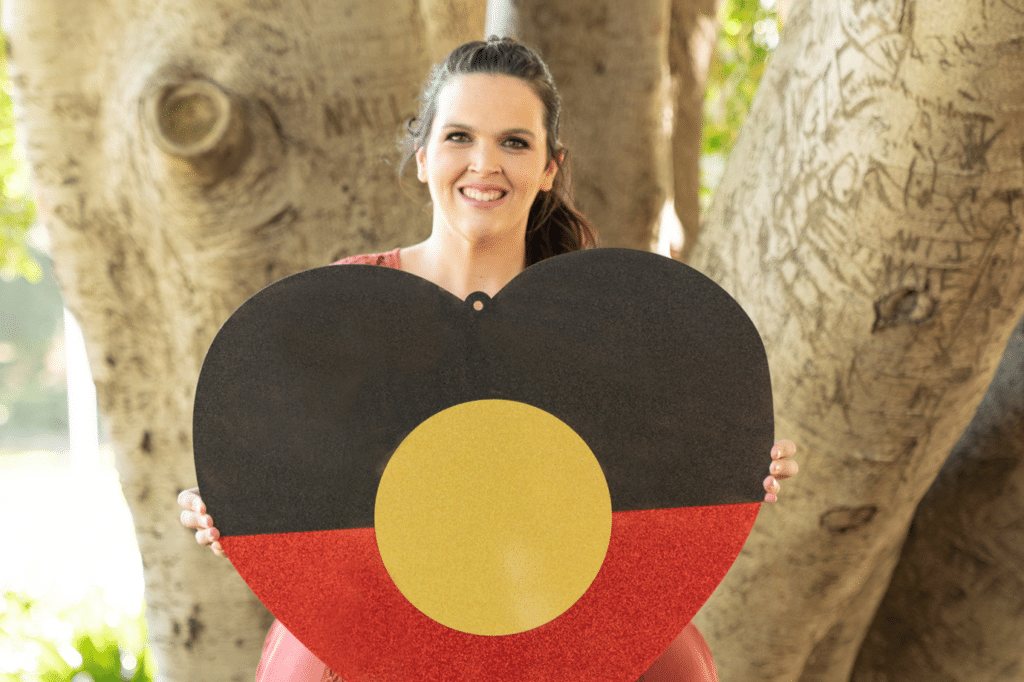Every year, the debate around the date of 26th of January grows louder. In 2024 it’s already dominating mainstream media, thanks to major retailers like Woolworths, Aldi and Big W deciding not to stock Australia Day merchandise, in response to a decline in demand and cultural sensitivity.
But understanding the date and the various stances on it can be confusing, especially if you’ve grown up thinking of it as our ‘national day’ and an opportunity to hit the beach or bbq.
While some politicians claim any change to the date is divisive, the truth is that treating the day as a harmless celebration undermines the very real experiences of Australia’s First Nations people. Because 26th of January doesn’t just mark the arrival of the First Fleet, it also marks the beginning of our darkest centuries, as Aboriginal people were murdered, mistreated and displaced.
The ongoing impact and generational trauma of this is still being felt.
What’s in a name?
So if not Australia Day, then what should you call it?
There is still plenty of debate and discussion around this. Some call it Invasion Day, others call it Survival Day, Aboriginal Sovereignty Day or a Day of Mourning. And some say that Australia Day should be celebrated on a different date, out of respect for First Nations people.
Rather than being caught up in calling it the ‘right’ thing, stay open to the discussion around the debate, and be proactive in educating yourself.
While some staunch flag-wavers claim Australia Day has been cemented as a day of celebration, in reality it only started being celebrated widely in 1994, although has been occurring in some way since 1915.
Disagreement with the date isn’t new – Aboriginal people first began protesting Australia Day celebrations in 1938, and every year this protest has become more widely recognised.
Education rather than celebration
Recognising 26th of January as a date we shouldn’t celebrate doesn’t mean ignoring the date altogether. This is an opportunity to be open to new perspectives, and to learn more about our history.
There are plenty of resources out there once you start to look – for example we recommend Australia Day by Stan Grant, in which he talks about reconciliation and the indigenous struggle for belonging and identity in Australia, and about what it means to be Australian. Essential reading for anyone willing to learn more about the Aboriginal experience in Australia.
You can also use the day to engage with the local community by attending Invasion Day or Survival Day observations, or to share First Nations content on your social media channels in solidarity with Aboriginal people.
If you’re a parent, talk to your children about why people are choosing not to celebrate the date, and look to age appropriate storytelling through picture books like Day Break by Amy McQuire and Matt Chun, and The Sacred Hill by Gordon Hookey.
A healthy debate
If you’re confronted by someone who feels strongly that we should celebrate Australia Day on 26th of January, being informed will help you have a healthy discussion with them about why it’s important to respect the true meaning of the date.
Some might argue that ‘we aren’t responsible for the actions of our ancestors’, but this isn’t about blaming people for past wrongs, it’s about understanding how past acts of injustice continue to oppress and disadvantage Aboriginal people today.
Others might say it’s not a ‘big deal’. But privilege is when you don’t consider something to be a problem because it doesn’t affect you personally. Just because it’s not a big deal for you, doesn’t mean it doesn’t cause pain to someone else. And choosing a different national day would mean we can all unify and celebrate together, rather than excluding the traditional owners of our nation.
A united future
Until we can create a national day which is truly for all Australians, and also recognise the loss of freedom that 26th of January brought to First Nations people, we’ll struggle to truly heal as a nation.
Our work with early childhood educators is encouraging early childhood settings to use the date debate to help kids understand Australian concepts such as ‘fairness’, and to learn to empathise with the experiences of others.
My hope is that the more we learn as a nation, the more inclusive we can be in how we celebrate being Australian, without creating division or adding to the pain and trauma already experienced by our mob.
Will you be part of this future?


